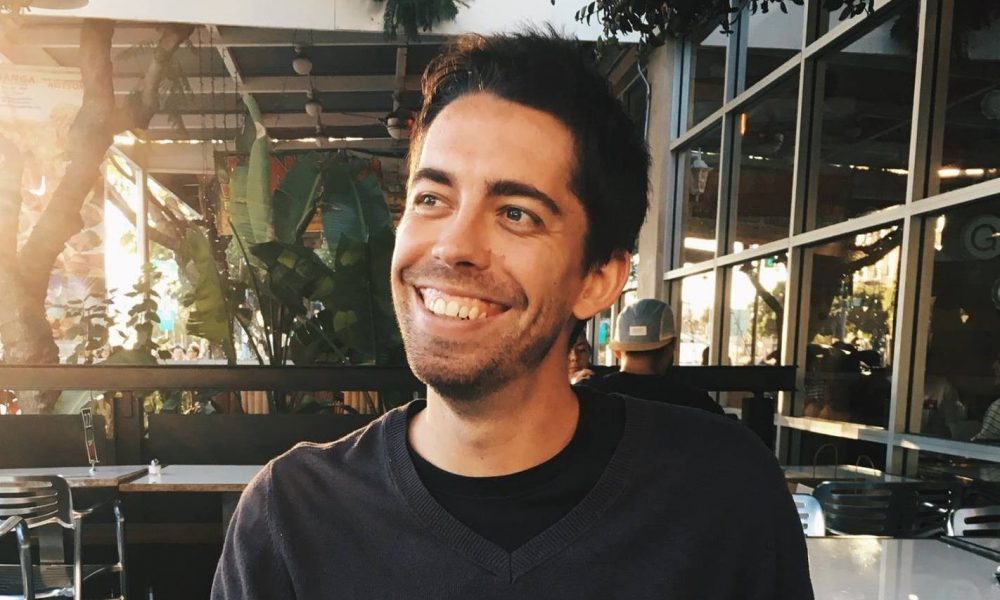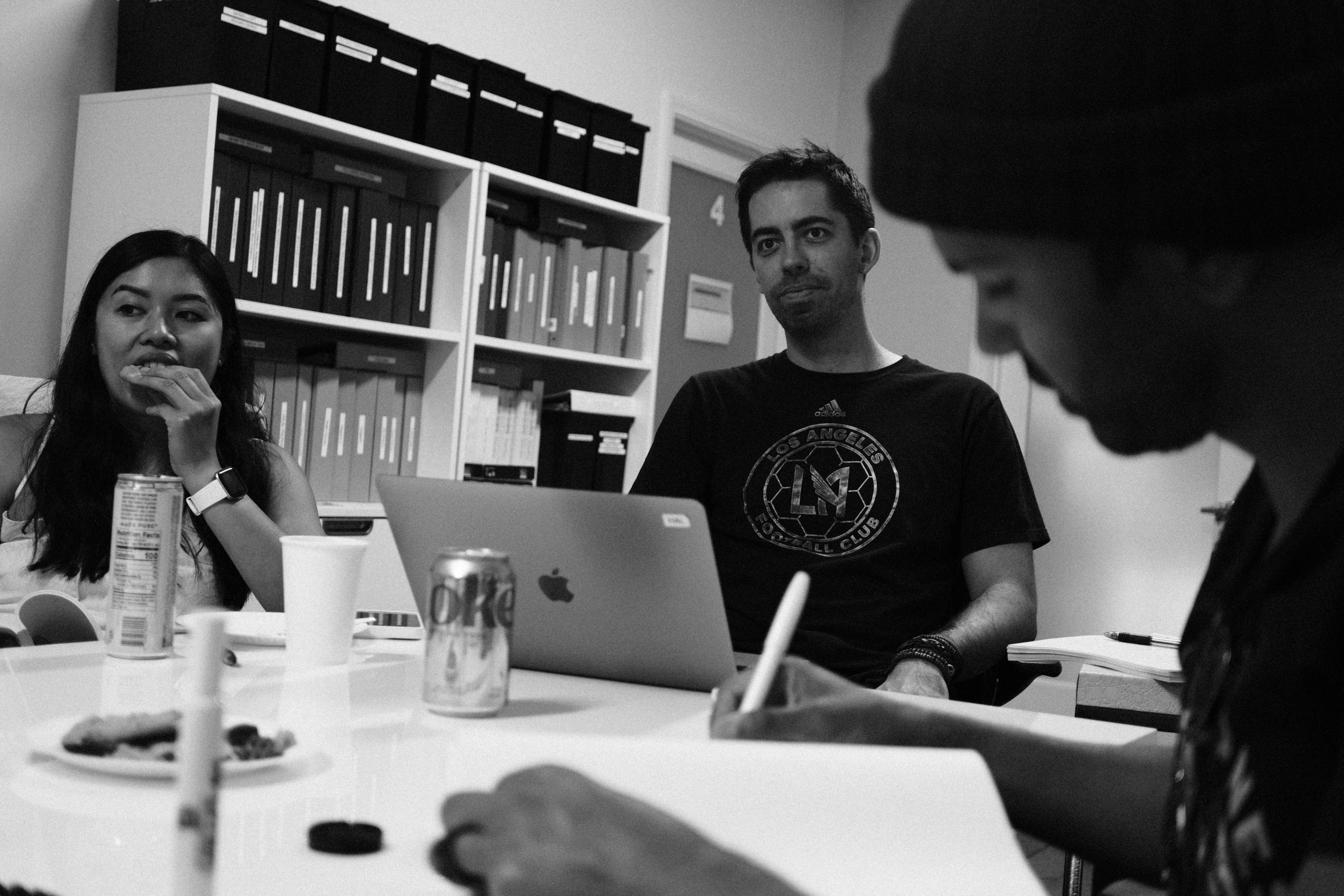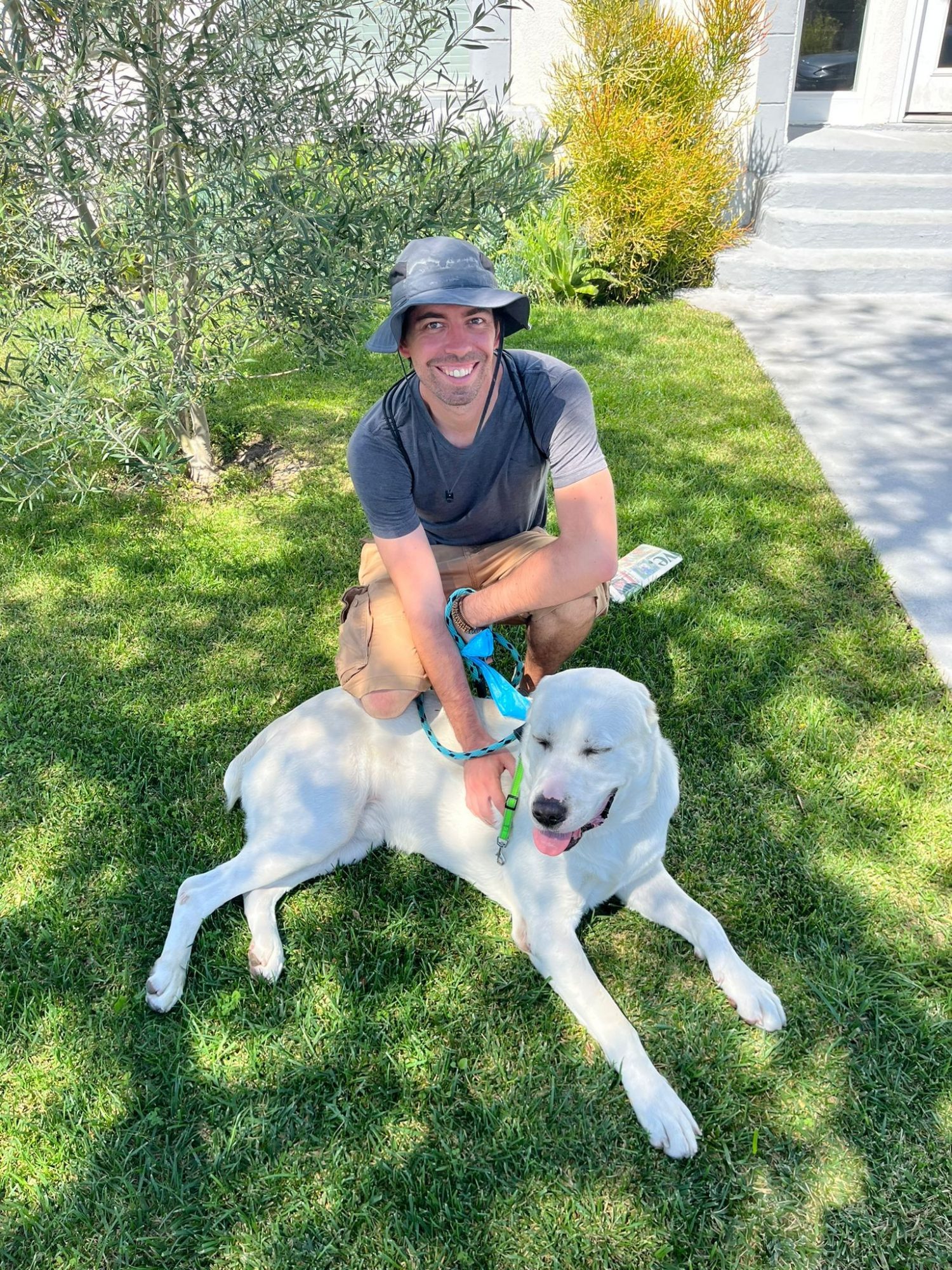

Today we’d like to introduce you to Nick Adams.
Hi Nick, we’re thrilled to have a chance to learn your story today. So, before we get into specifics, maybe you can briefly walk us through how you got to where you are today?
I’m a ghostwriter (insert: scary sounds) and screenwriter (insert: scarier sounds). I’ve been living, laughing, and loving in LA for nearly a decade, and before that, I lived in Las Vegas until a gang of husbands ran me out of town because they were tired of their wives saying, “Why can’t you be more like Nick?” While I’ve done some teaching, dog-sitting, and film festival work, I’m currently focused on using writing gigs to pay the bills and cover gambling debts.
I went from teaching English in Las Vegas to film school because my students encouraged me. Teenagers are always so smart and convincing. In hindsight, if I had spent $50k buying drinks for strangers in Hollywood bars over the course of two years, my screenwriting career would probably be further along. In any case, after leaving film school, I found that more people were willing to pay to share their ideas rather than pay me to share my ideas, even if every ghostwriting job does turn into a collaboration at some point.
Most of my clients come from freelancer websites like Fiverr, Craigslist, or UpWork, though I’ll also reach out on message boards and get cold-emailed through word-of-mouth or my personal website. It’s Los Angeles, so most of the ghostwriting gigs are helping people take their life stories and turn those into completed, industry-standard scripts–- which I find to be the easiest form of writing. Most clients aren’t necessarily “in the industry” some don’t even live in LA, but they all want some kind of finished product and that’s where I help. This often means managing expectations and doing a little bit of professional consulting or amateur therapy, but I like the work.
From there, the writing job becomes a question of whether I’m going without credit, being a co-writer, or getting some other attribution for the work. Sometimes that means using a pen name like “Frank Pavement” and other times, using nothing at all. Every story and gig is different though, so I stay flexible and try to figure out what the client really wants. I like building up my portfolio having experiences, and I’m almost always proud of the work I’ve been a part of.
I’m sure it wasn’t obstacle-free, but would you say the journey has been fairly smooth so far?
Like everyone, I’ve struggled. One time, I was on the couch petting a friend’s dog and then the dog got up and walked away. I’m still processing that trauma.
Regarding the job of being an unrepped and non-union writer, getting paid is often the most difficult part. Clients can promise the Moon and then later give me a mooning. Usually, that’s why I break bigger projects into smaller milestones. That way the client doesn’t need to risk too much of their money at once and I don’t need to risk too much of my time. That said, generally speaking, people are good about sticking to their word, and some middleman websites like UpWork offer payment protection, albeit for a cut.
Another struggle, though less frequently, is having creative differences with clients. However, because ghostwriting is customer service, I always try to find a way to make it work. Even a crazy idea usually has an intention behind it and I will try to find that intention when a client’s request confuses or deeply disturbs me. If they want to change the story’s setting from Florida to Texas, we can do that, but I also want to figure out the real “why” of it all.
It also helps to remember that I don’t need to feel protective of ideas, and I’ve been surprised before when someone else’s idea ended up playing better than I expected. As Pulitzer Prize-winner Kendrick Lamar says, “Be humble.”
Can you tell our readers more about what you do and what you think sets you apart from others?
I’m a bit of a renaissance man of minimum wage jobs, from Walmart customer service, janitorial work, referee, tutoring, kitchen staff, and more. From all that, I try to bring a real workman-like mentality to my writing. I write a lot, I write fast, I adapt, and I move on. My stories are always some version of trying to stir empathy within audiences, to help complicate their understanding of the world. If we allow for fictional characters to be complicated, it’s easier to see real-life strangers as complicated individuals. Having any extra patience or tolerance makes it harder to be mean, so I guess my writing specializes in adding to world peace.
My goal for 2024 is simply to keep helping fellow creators of all backgrounds and experiences. I’m trying to pitch ideas in rooms, sell scripts written on spec, get staffed on TV shows, and otherwise find ways of bringing people together through storytelling. In the meantime, I’ll continue ghostwriting (and dog-sitting!) because I really like playing in other people’s sandboxes and jumping around genres. That’s why my writing experiences cover everything from children’s shows (on YouTube) to adult films (not on YouTube).
Everyone has a life and ideas worth sharing, and I’m here to help!
Do you have any advice for those just starting out?
People don’t owe you anything. Your story isn’t interesting just because it’s your story or it really happened. Every scene needs: desire, action, conflict, and change. Write about what scares you. A finished product is a hundred times more valuable than a half-completed one. Be patient with other people. Bet the under on total points for any NFL game played in Europe. Don’t use alliterative character names. Share ideas; don’t worry about people stealing them. Watch NETWORK, M, and LIFE IN A DAY.
Only write (or create other art) because, and if, it’s fun. If you understand you won’t make any money or get famous from writing but still want to write, then (and only then!) should you be a writer.
Contact Info:
- Website: https://www.nick-works.com/
- Linkedin: https://www.linkedin.com/in/nick-adams-works/
- Youtube: https://www.youtube.com/@nickworks


 Image Credits
Image Credits
Dan Chen Murad Yunus














